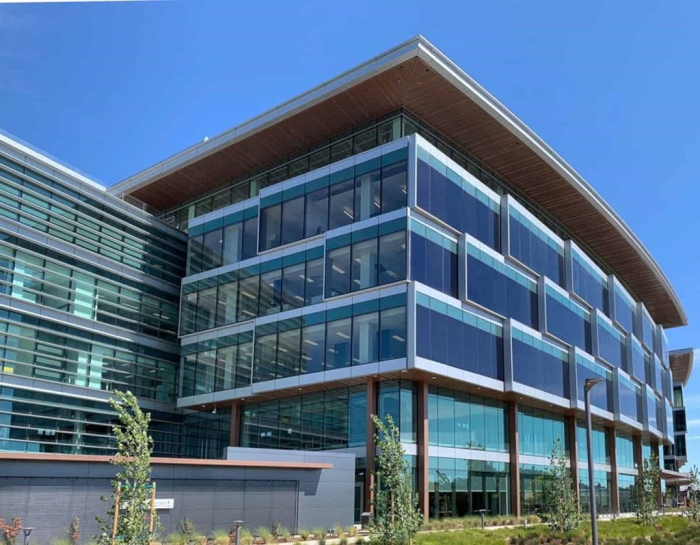Carbon neutrality
Korea’s SKC to invest up to $70 mn in US smart glass firm Halio
The investment will allow SKC to secure smart window solutions with both film-based and glass-based technologies
By Sep 27, 2023 (Gmt+09:00)
2
Min read
Most Read
LG Chem to sell water filter business to Glenwood PE for $692 million


Kyobo Life poised to buy Japan’s SBI Group-owned savings bank


KT&G eyes overseas M&A after rejecting activist fund's offer


StockX in merger talks with Naver’s online reseller Kream


Mirae Asset to be named Korea Post’s core real estate fund operator



SKC Ltd., a South Korean chemicals maker, is set to invest as much as $70 million in Halio Inc., a US smart glass technology company, to expand the energy-saving solution business.
SKC said its board of directors on Tuesday decided on the investment plan with aims to foster the energy-saving solution based on smart windows as one of the company’s core eco-friendly businesses along with biodegradable materials, which reduce plastic waste.
“The investment, in addition to the technology we have developed so far, is expected to allow us to further advance our smart window business,” said an official of SKC, a unit of South Korea’s second-largest conglomerate SK Group.
Smart glass controls the reflective properties of glasses with electrochromics to control the amount of light and heat passing through building windows. The color of glass darkens in hot weather to improve the cooling efficiency of buildings, while it becomes transparent in cold weather to enhance heating efficiency. Its appearance is similar to ordinary glass, but it made with technology using similar materials to that in battery production.
TO CUT ENERGY CONSUMPTION, CO2 EMISSIONS BY 40%
Commercial buildings with smart windows instead of ordinary glass can reduce power consumption and carbon dioxide emissions by up to 40% each.
The global smart window market is expected to grow by an average of 44% a year by 2030 as more countries including the US regulate the energy efficiency of windows or mandate zero-energy buildings, which produce enough renewable energy to meet their annual energy consumption requirements, to cut greenhouse gas, SKC said.
SKC, which selected smart windows as a promising eco-friendly business in 2017, has been developing film-based products to be attached to glass since the following year. The company has been trying to commercialize the products after winning certification from the Korea Conformity Laboratories last year with test productions.
A film-based smart window product can be easily applied to existing buildings' windows, but such treated windows take longer to make the energy-saving heat and light adjustments than glass-based smart windows.
Halio with glass-based technology is expected to help SKC secure both smart window solutions. The South Korean company aims to improve its film-based smart window products through cooperation with Halio while expanding its global market presence through active marketing activities to major customers for both technologies.
SKC also plans to increase Halio’s productivity based on its manufacturing know-how.
Write to Mi-Sun Kang at misunny@hankyung.com
Jongwoo Cheon edited this article.
More to Read
-
 Chemical IndustrySKC plans world’s largest biodegradable plant in Vietnam
Chemical IndustrySKC plans world’s largest biodegradable plant in VietnamSep 25, 2023 (Gmt+09:00)
1 Min read
Comment 0
LOG IN


